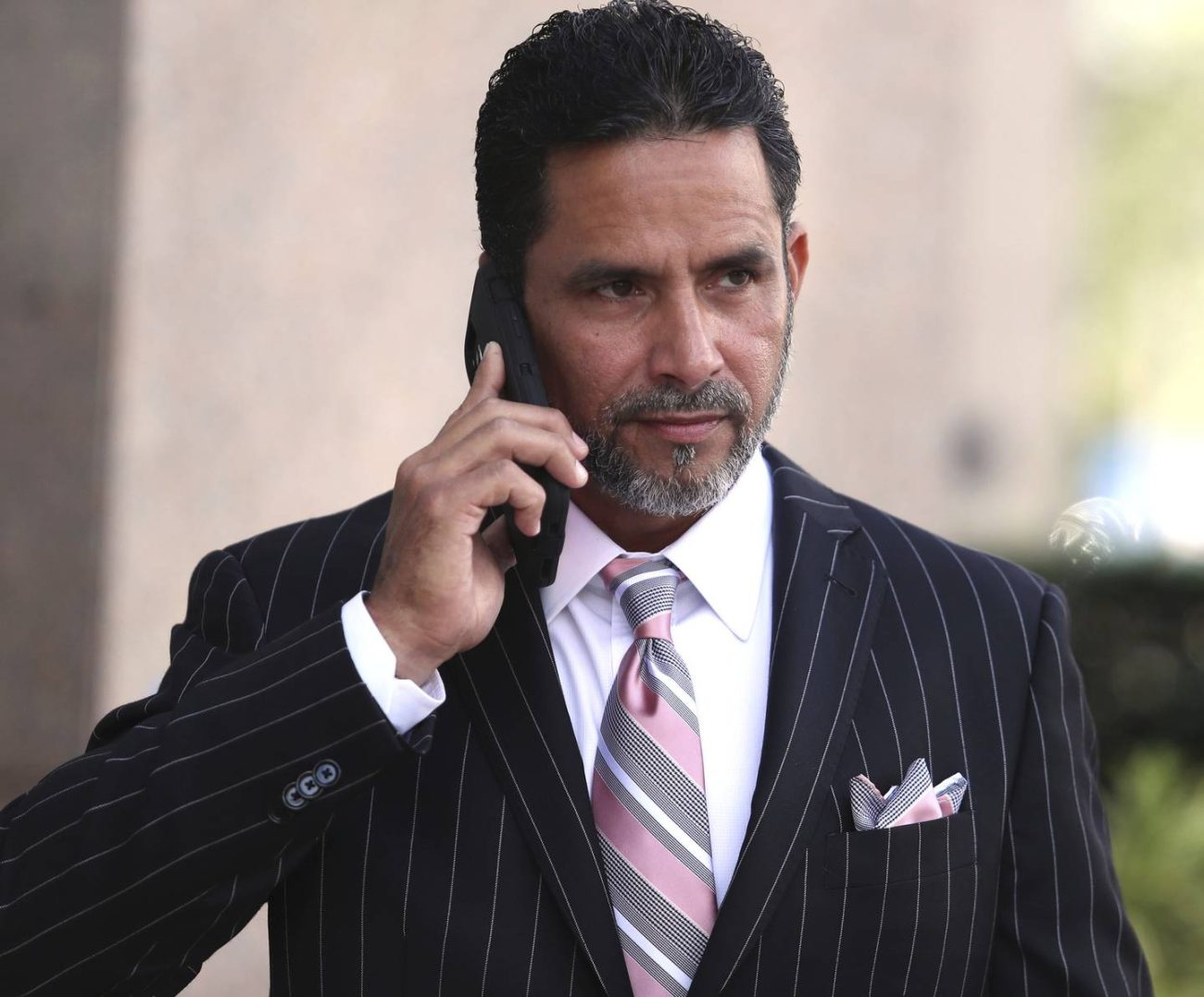
Rod Velez sues in bid to get Broward School Board seat he won
South Florida Sun Sentinel | By Scott Travis | January 9, 2023
Rod Velez has filed a lawsuit to try to get back a School Board seat that Gov. Ron DeSantis filled the same day he had hoped to be sworn in.
In a suit filed Monday in Broward County Circuit Court, Velez is challenging both DeSantis and Daniel Foganholi, who the governor appointed on Dec. 22, minutes after declaring the seat vacant.
Velez defeated challenger Marie Murray Martin in the Nov. 8 runoff for a District 1 seat in the Hollywood area but decided not to get sworn in on Nov. 22 with elected members, due to questions about his eligibility. He was convicted in 1995 of aggravated battery, a second-degree felony.
Voters approved a constitutional amendment, known as Amendment 4, in 2018 that allowed most felons the right to vote. In 2020, Velez registered to vote and later decided to run for office. But the governor’s office said Velez is not eligible to serve because he hadn’t gotten his full rights restored by a state Clemency Board. These rights include holding office, serving on a jury and owning firearms.
After winning two legal victories, Velez announced the morning of Dec. 22 he was going to get sworn in that day. But before he could do that, DeSantis declared the seat vacant and appointed Foganholi.
“I am continuing this fight for all of our children and returning citizens,” Velez said in a statement. “I am looking forward to having the court affirm my legitimate right to represent the people of Broward County, as elected by the voters of District 1.”
Foganholi could not be reached. Bryan Griffin, a spokesman for DeSantis, said Velez had filed a “meritless lawsuit” and that the governor was right in declaring the seat vacant and appointing a new School Board member.
“As a convicted felon whose civil rights have not been restored, Velez could not qualify and does not qualify for the School Board,” Griffin said in a statement. “Contrary to Velez’s position, Amendment 4 did not restore his right to hold office.”
In the lawsuit, Velez’s lawyers argue that DeSantis declared the seat vacant prematurely.
“We believe the governor exceeded the authority granted to him by the Florida Constitution in denying Rod Velez the office to which he was elected,” Velez’s lawyer, Marc Burton, said in a statement. “The voters of District 1 chose Rod Velez to fight for the children of Broward County, and we are confident that the Court will reach the right decision to effectuate the will of the voters.”
State law gives those who win seats 30 days to fill it. The suit contends that the seat didn’t become vacant until the end of the day Dec. 22. DeSantis issued an executive order declaring it vacant at 10:05 a.m., less than an hour before Velez had planned to get sworn in.
“The Executive Order is based on the false conclusion that Velez ‘refused’ to take office,” the suit states. “Voluminous evidence demonstrates that Velez never refused to take office, but rather, was eager to be sworn in as soon as possible. Moreover, refusal to take office is not a permissible basis for the Governor to declare a vacancy under the Florida Constitution.”
The suit also said that Velez had applied to get his full civil rights restored, and the process is supposed to be “immediate” and “automatic,” but the Clemency Board, consisting of DeSantis and two members of his cabinet, sent a letter to Velez statingthat it could take “several years before the investigative process begins.”
“The Clemency Board has failed to process Velez’s application, ostensibly so that the Governor could seek to override the will of Broward County voters who elected Velez and appoint his own chosen member to the Broward County School Board,” the suit alleges.
Martin said Velez is fighting “a losing battle” by trying to claim the seat now.
“Rod Velez surrendered his seat by not being sworn in before December 22,” she said. “On that day, the 30,416 votes District 1 voters cast in his favor were no longer valid. It’s over and District 1 voters were disenfranchised and the power of the vote was undermined by Mr. Velez’s deceit. Instead, Mr. Velez should be concentrating on getting his clemency.”
Although Velez’s lawyers argue he is eligible to hold office without clemency, saying there is case law that equates voting rights with the rights to hold office, the State Attorney’s Office and the Florida Department of Law Enforcement disagreed. It’s a felony in Florida to take an oath saying you’re qualified to run for office when you’re not. The two agencies decided not to charge him, saying Velez believed he was eligible and didn’t knowingly break the law.
“It is undisputed that without clemency Velez did not meet the qualifications and was not eligible to sign the oath which states, ‘I am qualified under the Constitution and Florida laws to hold the office which I desire to be nominated or elected,’” a closeout memo from the State Attorney’s Office said.
If he did take an oath swearing himself into office, he could face a felony charge, said Bob Jarvis, a law professor at Nova Southeastern University in Davie who has followed the case closely.
Jarvis doubts Velez will be successful in his new legal challenge. “Let me begin by saying that we are in uncharted waters. There really is no precedent the courts can rely on,” Jarvis said. “And it certainly would have been better if DeSantis had waited until Dec. 23, so that there would be no question that the 30 days specified in the Constitution had elapsed.”
However, Jarvis said Velez didn’t appear eligible to be sworn in on Dec. 22. “Thus, while DeSantis likely acted prematurely, he can argue that his hand was forced by Velez’s plan to be sworn in illegally and, in any event, Velez suffered no injury by the premature appointment because Velez was not, and still is not, eligible to hold office,” Jarvis said.





